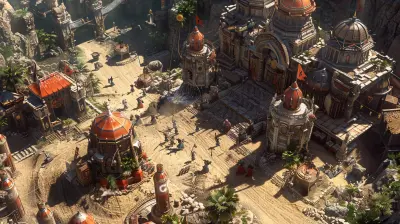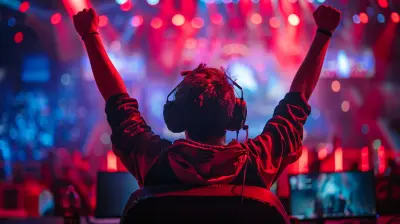Social Skills Development in Children Through Play
21 October 2025
Let’s be real—helping kids learn how to interact with others can be a wild ride. They say the funniest things, they argue over toys like it’s a courtroom trial, and somehow they make best friends and sworn enemies in five minutes flat. But as chaotic as it may seem, these moments are golden opportunities for growth. One of the most powerful tools we have to guide children on this journey? Play.
Yep, that’s right—plain old playtime. Whether it’s a game of hide-and-seek, pretend tea parties, or online multiplayer adventures in Minecraft, play is where kids try out social roles, build empathy, and master those oh-so-important social skills with others.
If you’ve ever wondered how play helps shape your child into a great communicator, collaborator, and friend, hang tight—we’re diving deep into the world of social skills development in children through play.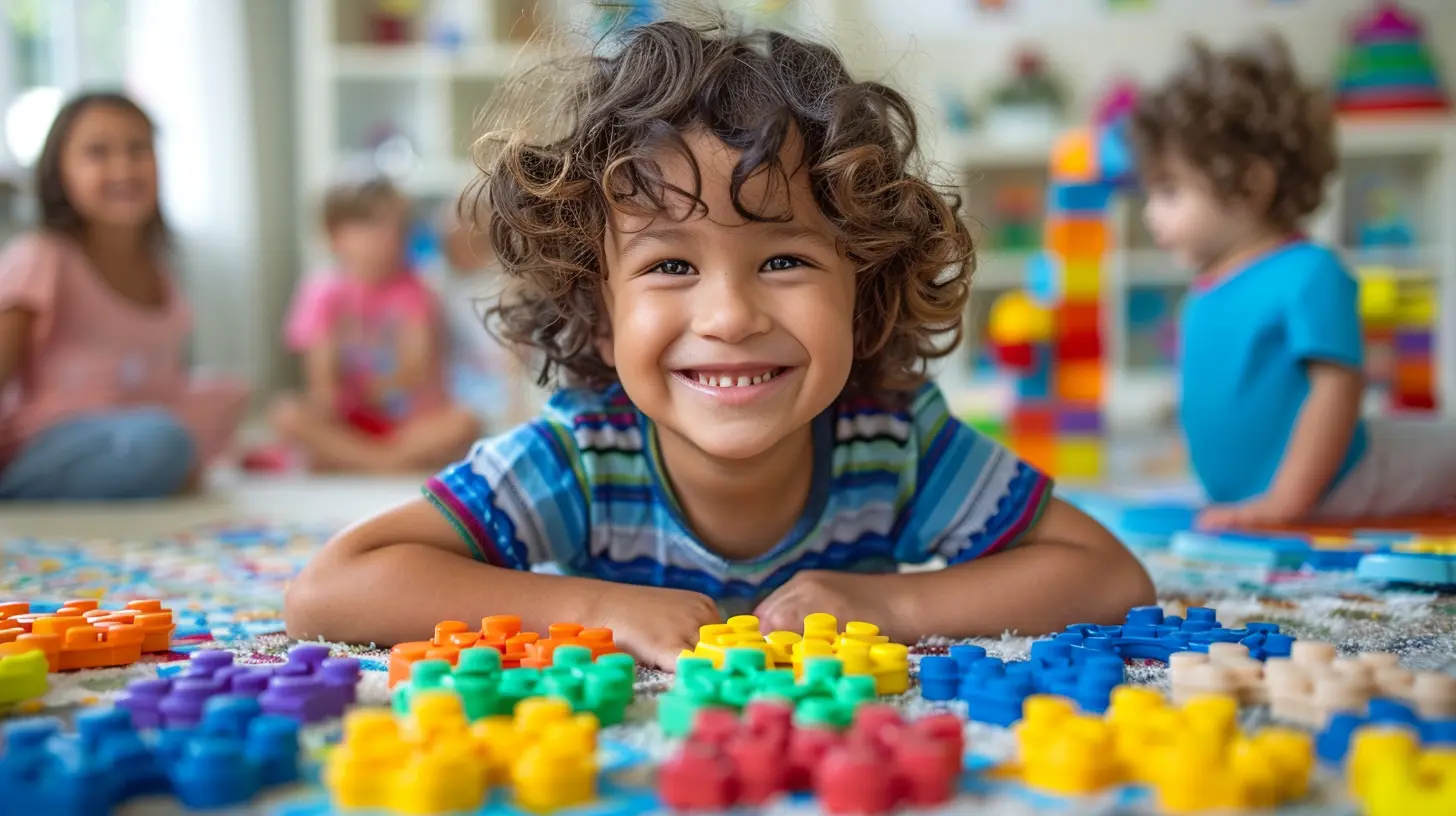
Why Are Social Skills So Important?
Before we jump into the play side of things, let’s talk about why social skills even matter. Think of them as the “soft skills” of life. They include things like:- Sharing and taking turns
- Communicating clearly
- Listening actively
- Resolving conflicts peacefully
- Working in teams
- Expressing emotions appropriately
- Developing empathy
These aren’t skills kids are born with—they’re learned through interaction, experience, and yes, sometimes awkward trial-and-error. Imagine your little one trying to make a friend but yelling instead of talking, or refusing to share a toy, only to end the playdate in tears. Yep, we’ve all been there.
These experiences are actually stepping stones. Through every little quarrel or giggle-filled game, children build the foundation for healthy relationships, both now and in the future.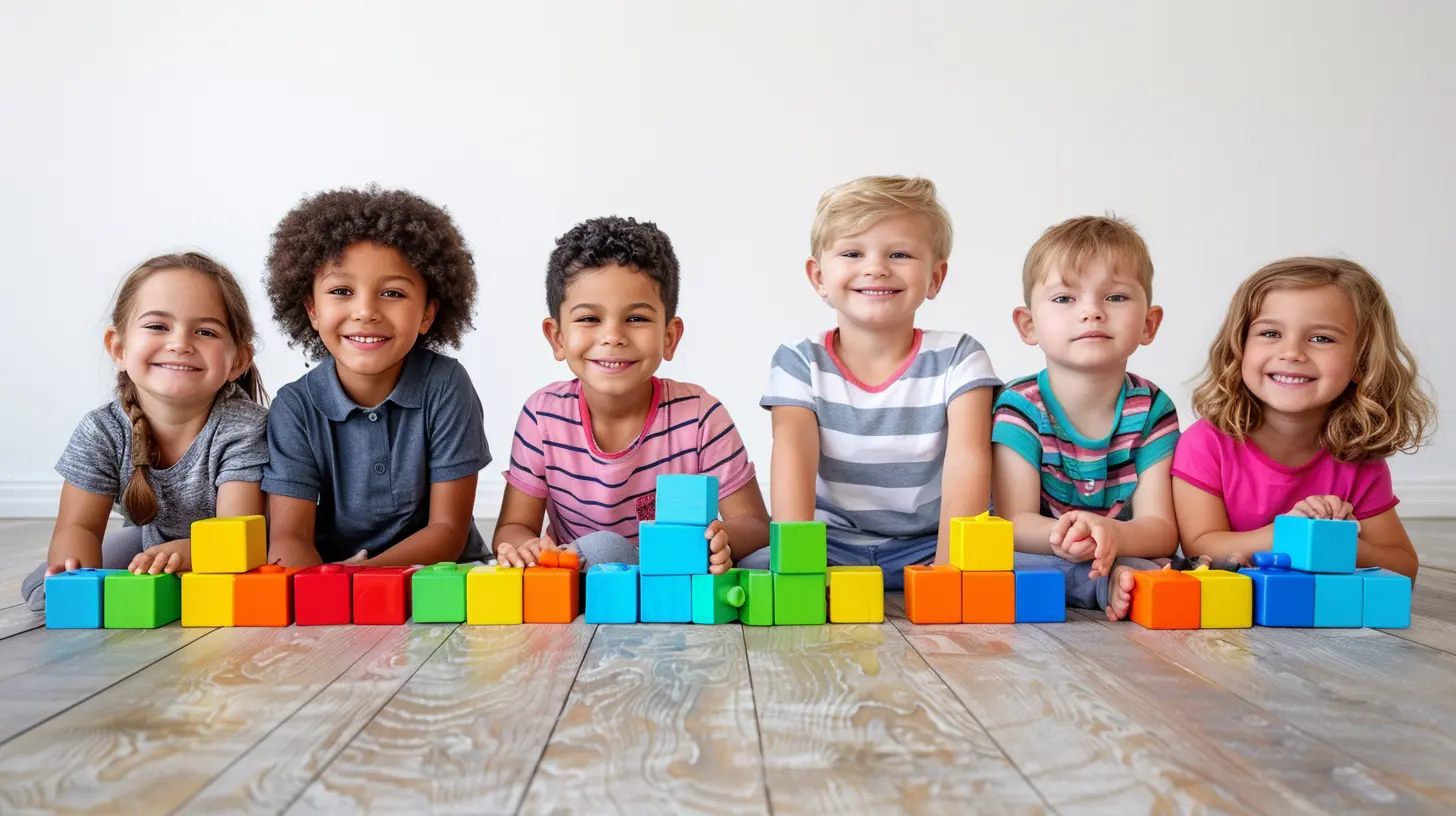
Play: The Social Skills Superpower
So here’s where play swoops in like a superhero. Play, in all its glorious forms, is the best and most natural way for kids to develop social skills. It’s hands-on. It’s fun. And it’s freeform—there’s no pressure, just learning through doing.Let’s break it down.
1. Pretend Play: Practicing Real Life
Ever seen a toddler put a diaper on a teddy bear or pretend they’re a firefighter? Welcome to the magic of pretend play. This kind of imaginative play lets kids step into someone else’s shoes—literally and figuratively.Through roleplay, children learn about:
- Cooperation (“Let’s be a family and I’ll be the baby!”)
- Perspective-taking (“What would a doctor do if someone is sick?”)
- Communication (“You be the teacher, and I’ll be the student”)
It’s like a dress rehearsal for real-world interaction. Pretend play gives kids the freedom to try out social roles, understand other people’s feelings, and act out different scenarios.
And the best part? There’s no right or wrong way to do it. It’s all about trial, imagination, and connection.
2. Group Games: Learning Teamwork and Rules
Now think of classic group games—Duck Duck Goose, tag, hide and seek. These aren’t just fun ways to burn energy; they’re packed with social learning.In these types of games, children figure out how to:
- Follow rules
- Take turns
- Handle winning and losing
- Work as a team
These experiences teach them fairness and patience. Plus, group games are often where kids experience their first taste of leadership or collaboration. It’s not just about winning, it's about working together.
Think of it like a sports team—players need more than talent; they need to communicate, support each other, and sync up strategy. Same goes for kids on the playground.
3. Conflict? That’s a Good Thing (Really!)
Okay, I know what you’re thinking—what about when playdates go sideways? When someone refuses to share or tempers flare? Here’s the thing: conflict during play isn’t a bad sign. It’s actually part of the learning curve.When kids experience conflict and work through it (with a little help from adults), they’re learning how to:
- Express frustration in words
- Listen to others’ feelings
- Come up with compromises
- Apologize sincerely
- Move forward
All of these are key social skills that can’t be taught in a textbook. It’s like emotional muscle-building. Sure, it’s tough at times, but those mini tensions are what help kids figure out how to handle bigger situations later in life.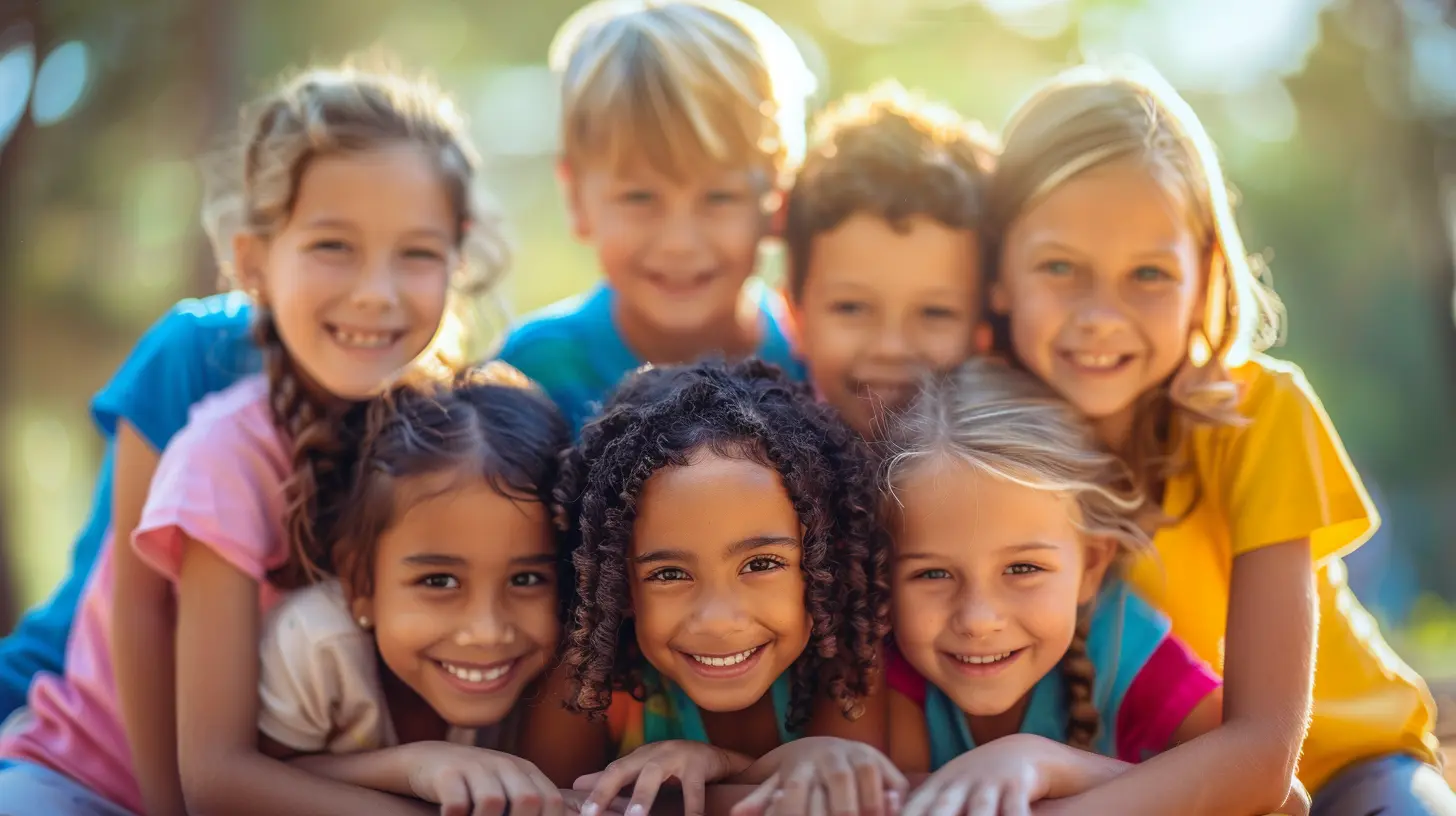
Types of Play That Build Social Skills
Let’s take it a step further. Not all play looks the same, and different types of play teach different social skills. Here’s a little cheat sheet:1. Cooperative Play
This is play where kids work together toward a common goal. Think puzzles, building a fort, or organizing a pretend restaurant. Cooperative play teaches:- Teamwork
- Shared goals
- Mutual decision-making
It’s brilliant for building unity and learning that two brains are better than one.
2. Competitive Play
Games like board games or sports introduce a little friendly competition. These help kids learn:- Fairness
- Self-control
- Sportsmanship
They also learn how to handle disappointment—a crucial life skill!
3. Parallel Play (Yep, It Counts Too)
Younger kids, especially toddlers, engage in what’s called parallel play—playing next to each other without much interaction. While it might look like they’re doing their own thing, they’re still learning by observing. They’re picking up social cues, learning how others play, and beginning to mimic behavior.4. Digital Play
Surprised? Even screen time can have social benefits if used with purpose. Games like Minecraft, Roblox, or cooperative mobile games can:- Teach collaboration
- Encourage problem-solving
- Boost communication (especially in multiplayer formats)
Of course, this needs to be balanced and monitored, but digital games are part of the modern play ecosystem.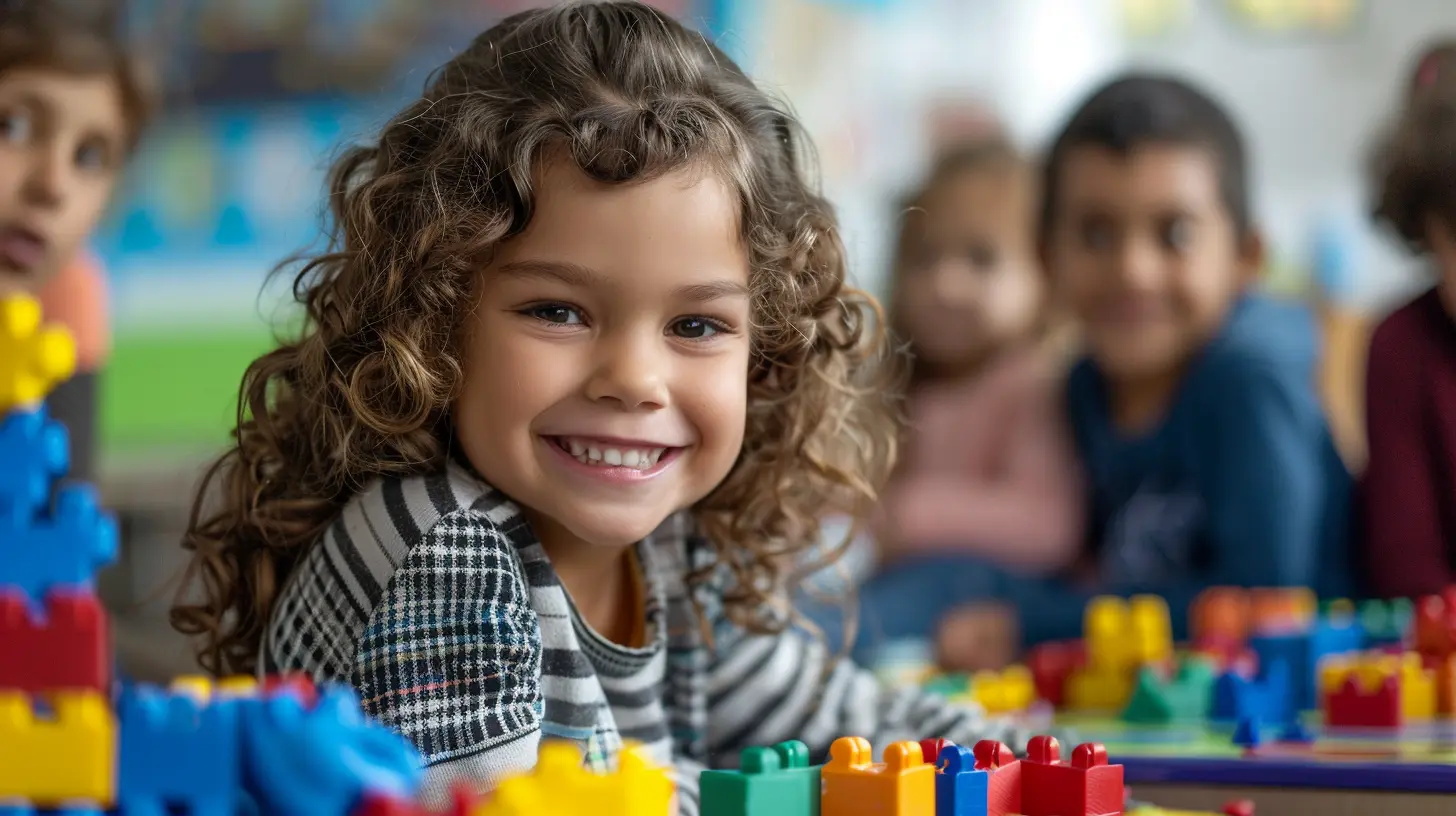
How Parents and Teachers Can Support Social Play
You don’t have to stand on the sidelines. Adults play a big role (pun intended) in guiding children through social play.Here’s how you can help:
Be a Role Model
Kids watch everything. Show kindness, apologize when needed, and treat others with respect. Your actions speak volumes.Set Up Play Opportunities
Arrange playdates, join community groups, or encourage team sports. Provide access to games that involve cooperation or sharing.Jump In Occasionally
Sometimes, participating in the play can help model good behavior. Just don’t take over—let kids lead, and prompt gently when needed.Debrief After the Play
After the toys are packed up or the game ends, talk about what happened. Ask open-ended questions:- “How did you feel when you and Alex were building that tower?”
- “What was hard about taking turns with the bike?”
Reflection helps kids solidify what they’ve learned and do even better next time.
Games That Boost Social Skills (And Are Actually Fun!)
Let’s face it—some games feel like chores. But these? These are both engaging and secretly educational:| Game | Social Skills Taught |
|------|----------------------|
| Charades | Non-verbal communication, teamwork |
| Simon Says | Listening, focus, following rules |
| LEGO or block building | Sharing space and ideas, cooperation |
| Board games (e.g., Candy Land, Guess Who?) | Turn-taking, patience, fair play |
| Roleplay kits (doctor, veterinarian, shopkeeper) | Empathy, storytelling, negotiation |
Add these to your playtime rotation, and you’ll start to see the social sparks fly.
Long-Term Benefits of Social Play
Here’s the kicker—kids who engage in social play don’t just become better friends. They’re also more likely to be:- Confident communicators
- Effective problem-solvers
- Emotionally intelligent
- Academically successful
- Ready for real-world challenges
It’s like giving them a social toolbelt they’ll use for the rest of their lives.
Final Thoughts
No toys required, no expensive classes needed—just the simple, beautiful power of play. It’s how children make sense of the world, bond with others, and slowly become the empathetic, cooperative humans we all hope they’ll be.So next time your child is building a pirate ship out of couch cushions or organizing a make-believe tea party with invisible guests, smile. They’re not just playing. They’re growing into someone spectacular—one game at a time.
all images in this post were generated using AI tools
Category:
Games And Social SkillsAuthor:

Aurora Sharpe
Discussion
rate this article
1 comments
Aelith McBride
This article insightfully highlights the crucial role of play in fostering social skills among children. Engaging in cooperative activities helps them develop communication, empathy, and conflict resolution abilities, essential for their overall emotional and social growth. Great read!
October 22, 2025 at 3:09 PM

Aurora Sharpe
Thank you for your thoughtful comment! I'm glad you found the article insightful and recognize the importance of play in developing social skills in children.
